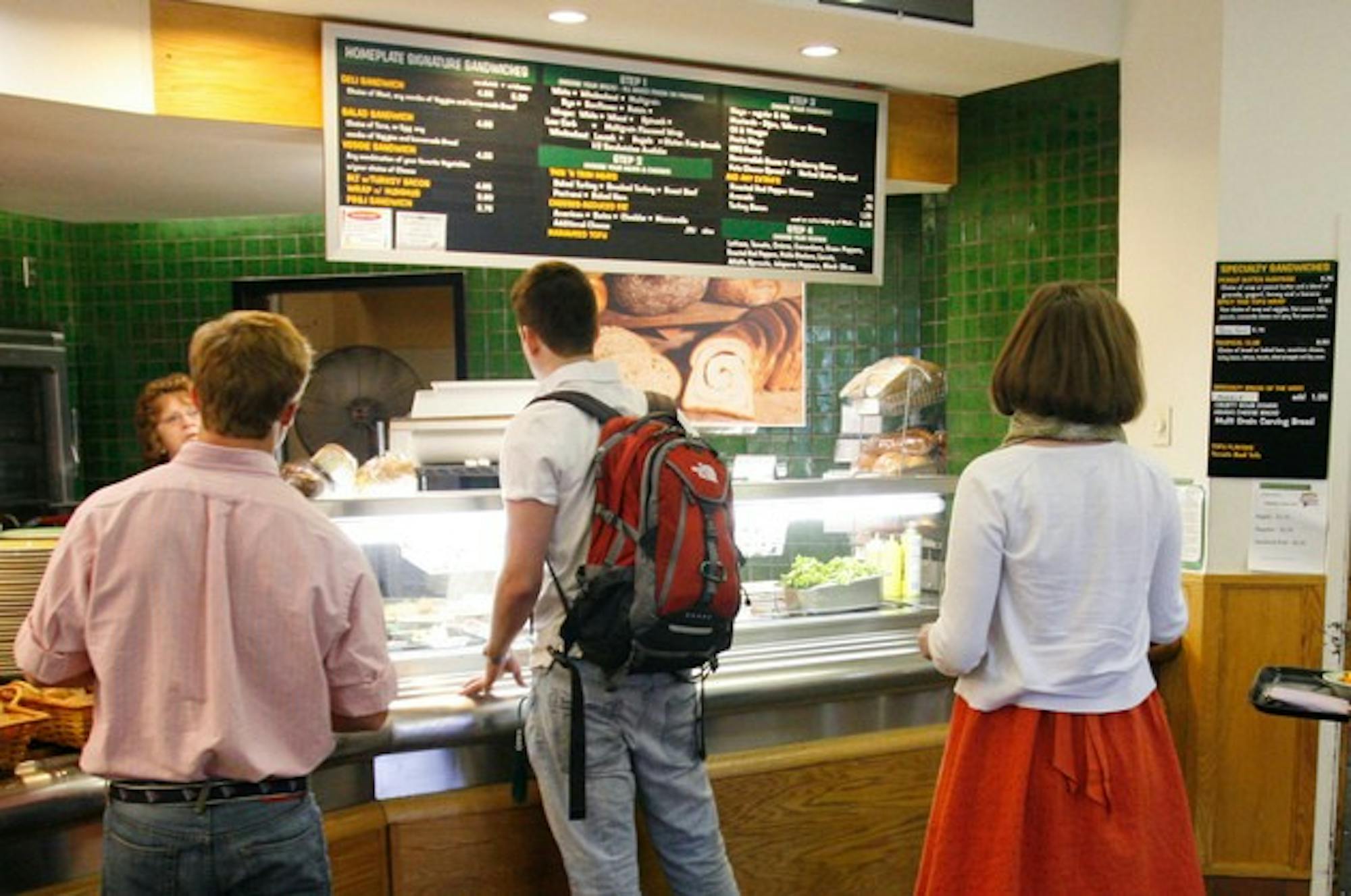"Over the summer months, we review every single item to see if there are any pricing adjustments necessary," DDS Director Tucker Rossiter said. "We don't take a broad stroke approach unlike some schools with all-you-can-eat plans; we look at all our items individually."
Because DDS policy states that food prices for the entire year must be set in September, Rossiter said that only in very pressing circumstances would prices change before the next annual review.
"We would if there was a particular item whose costs just went off the charts, but we try to maintain our prices," Rossiter said. He added that specials, such as dishes on the Food Court hot line, were more likely to have their prices adjusted during the year.
The policy of price consistency has already hurt DDS, Rossiter said, noting that absorbing the rising cost of food transportation has been a challenge since January.
"We're paying for that," Rossiter said. "We're paying surcharges when these vendors are passing on their fuel costs, which is allowed in the contract. It's a real challenge right now because the cost of food is going up so rapidly."
To counteract this expensive trend, DDS purchasing managers have worked closely with vendors to find the lowest prices for bulk purchases, Rossiter said. For example, DDS recently bought a large supply of frying oil in anticipation of rising frying oil costs in the months ahead.
Buying local produce, an internal policy set by Rossiter, may also save DDS some money, he said. In light of rapidly increasing fuel prices, the cost of transporting food from their production location to Hanover has become increasingly expensive, he said.
"What prices will go up locally will go up nationally, but hauling something from California will probably have that extra cost," Rossiter said. "Having something grown in New Hampshire could be an advantage, and we feel very strongly that as much as can buy local, we should."
Schools with all-you-can-eat plans have had to adapt to rising food prices through significant menu and plan changes. Harvard University attempted to eliminate whole grain pastas from its menus and offer more chicken thighs instead of chicken breasts, according to the Associated Press. The efforts did not last long in the face of student protest.
Middlebury College and the University of California, San Diego recently removed trays from their cafeterias in an attempt to curb waste, Rossiter said. Trays encourage students to grab many plates of food that eventually go to waste, the schools believe. The University of Massachusetts, Amherst has started serving students smaller portions in an effort to lower costs, according to the Associated Press.
Dartmouth's retail pricing means that the costs are self-regulating, to an extent, Rossiter said. According to Rossiter, DDS simply eliminates items when the prices get to the point where students will not buy them.
"We don't necessarily look to buy a lesser quality product because in our market, there are expectations," Rossiter said.




